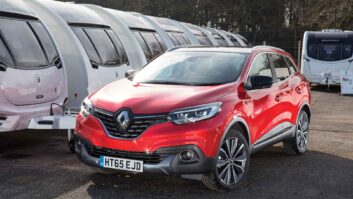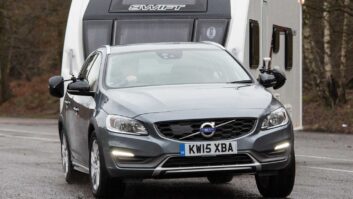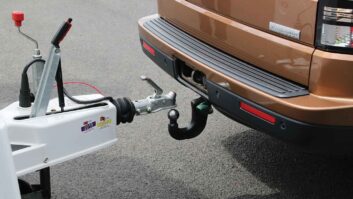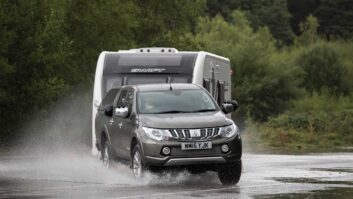Knowing where to buy a used car is a complicated business. There’s a bewildering variety of vehicles to choose from.
It’s even trickier when you decide it’s not just going to be for your day-to-day needs, but will also be used for towing, in which case you’ll need to think about matching a car to a caravan.
Then, once you decide on the right model, you need to find the best place to buy from. Should you go for a main dealership? Or would one of the large independent car supermarkets offer better value? Could buying privately make your budget stretch further, and should you consider buying online? There are numerous considerations to be aware of, just as there would be with buying a used caravan.
Here, we’ll talk you through the advantages and disadvantages of each to help you find the best used car for towing a caravan.
Where to buy a used car
Main dealers
Car supermarkets
Independent dealers
Private sale
Main dealers
One of the most popular places to buy a used car is a main dealer. These hold the franchise for selling a particular make of car from new.
Although the used stock will be more varied, including cars from other brands taken in part-exchange, most of the dealer’s used stock is likely to be from the same manufacturer.
That’s great if you have narrowed down your shopping list to a particular make or model, but not so good if you hope to look at more than one possible purchase in the same place.
Main dealers don’t tend to stock very old cars, either, so if you are looking for a 10-year-old vehicle, you are better off searching elsewhere. Instead, you’ll find a choice of more recent models.
One of the big plus points of buying your next car from a main or franchised dealer is that used vehicles usually come with a package of benefits.
Manufacturer-approved used schemes typically include a year’s warranty, a history check, a mechanical inspection and 12 months of breakdown cover.
Sometimes the benefits last for two years rather than one, and may include insurance against an MOT failure.
You are unlikely to find such benefits from a car supermarket or independent dealer included in the asking price – but they might be available at extra cost.
Prices are likely to be higher at a main dealer than elsewhere, but the difference between main dealers and the rest will narrow once you take into account the value of the approved package. To close the gap, you’ll need to haggle on price.
Pros
- Approved used package offers peace of mind
- Mostly high-quality cars
- Test drives readily available
Cons
- Haggling needed for the best deal
- Unlikely to stock variety of makes
Car supermarkets
Car supermarkets are independent dealers operating on a very large scale. Unlike the franchised dealers, they don’t focus on one or two brands, either.
Instead, they will stock a wide variety of cars from many different manufacturers. So if you want to take a look at a number of models, car supermarkets should suit you. You can also expect to see a broad range of ages, from nearly new vehicles to bargain-priced older models.
Individual supermarkets take different approaches to the way they operate, but basically, the classic supermarket model is ‘pile them high and sell them cheap’.
Prices generally undercut main dealers, and there’s often a no-haggle policy. As a result, the price you would see for the used Toyota Highlander below is the price you pay.

On the other hand, you shouldn’t expect a long warranty or breakdown cover to be included in the price, although these are often available at extra cost.
Test drives are usually available, although it’s worthwhile making an appointment in advance if you are interested in looking at a particular car. Supermarkets cram a great deal of stock into the available space, so it can take them a while to dig out a specific model for a customer.
Compared with purchasing from a main dealership, car supermarkets can be rather no-frills in their approach. They might not roll out the red carpet for you, and the sales staff will be keen to make a sale or move on to the next customer.
Pros
- Plenty of choice
- No need to haggle for the best deal
Cons
- No-frills approach
- Long warranties might cost extra
Independent dealers
Much smaller than the car supermarkets, independent dealerships have no tie to any particular manufacturer.
They will often receive some of their stock from nearby main dealerships who take cars in part-exchange that are too old to sell on their own forecourts. That makes the independent dealers a good source of older, cheaper vehicles.
Small independent dealers also don’t have a household name above the door to bring in customers, so they tend to rely very much on building up a good reputation. That means the best of them will always aim to offer excellent service. Such dealers won’t have the same number of vehicles in stock as a car supermarket, but if they have what you are looking for, there’s a good chance it will be keenly priced. Unlike car supermarkets, you must usually haggle for the best deal.
You can expect some form of warranty, but longer cover is likely to cost extra.
Pros
- The best offer great service
- Your local dealer isn’t far away
Cons
- Limited choice of models available
- Long warranties are usually extra
Private sale
Of course, you don’t need to go to a dealer to buy a car. You can always buy privately from the previous owner.
In theory, this is one of the cheapest ways to buy. Just be aware that some owners price their cars optimistically. Compare the price with similar models from a dealer to be sure the purchase you are contemplating is good value.
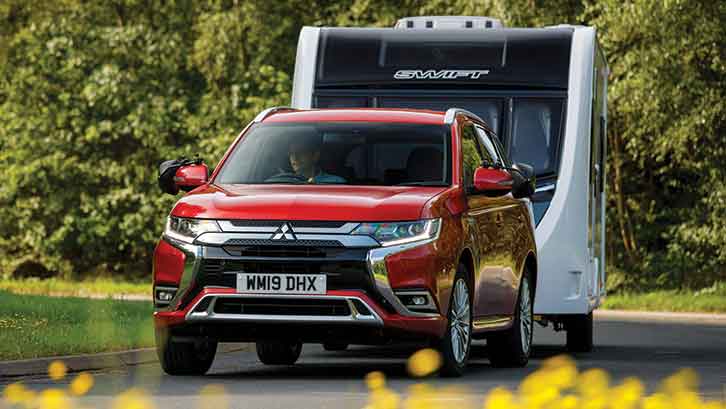
In addition, be careful when taking a test drive – make sure your insurance covers you. And if you are in any doubt about the car’s condition, arrange an independent mechanical inspection.
Remember, you don’t have the same consumer rights when buying privately as you do if you use a dealer. Unless the seller misleads you, there’s no comeback if the car turns out to be a dud.
Pros
- Low prices
- No hard sell
Cons
- Fewer legal rights than when buying from a dealership
- Watch out for ‘pride and joy’ pricing
After buying your car you’ll want to make sure you’re towing it properly – follow our caravan towing tips to see our advice for staying safe on the road.
If you’ve enjoyed reading this article, why not get the latest news, reviews and features delivered direct to your door or inbox every month. Take advantage of our brilliant Practical Caravan magazine SUBSCRIBERS’ OFFER and SIGN UP TO OUR NEWSLETTER for regular weekly updates on all things caravan related.



